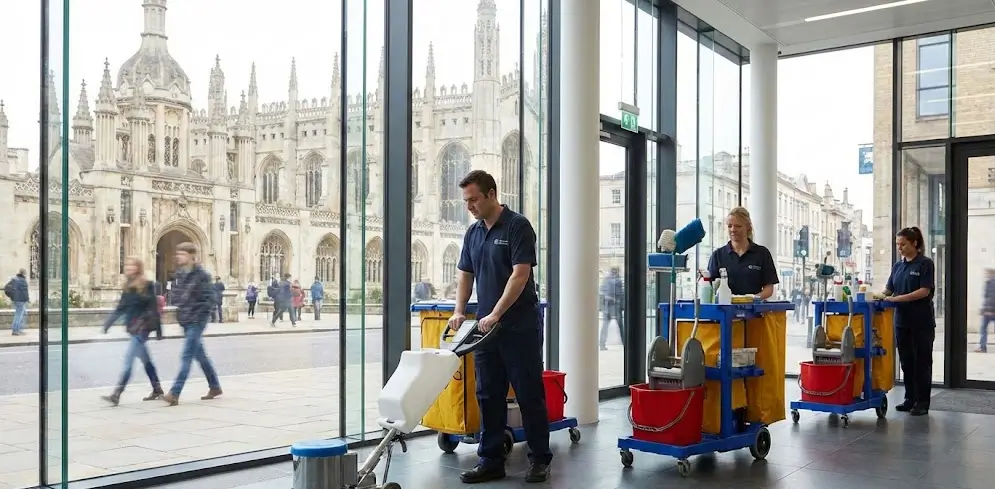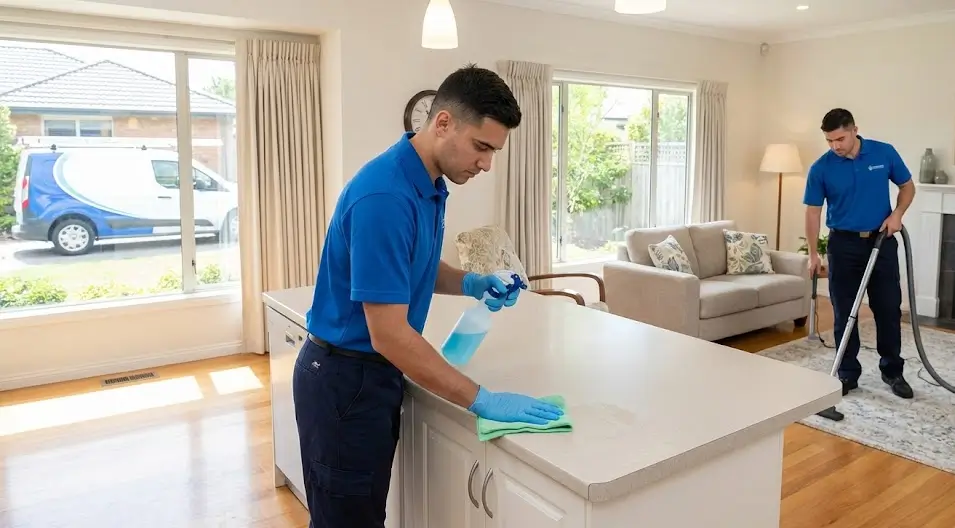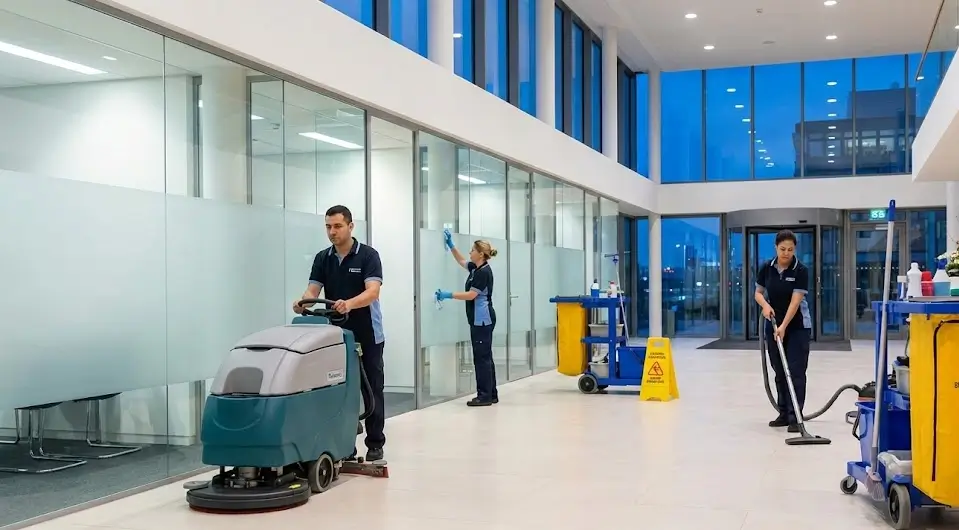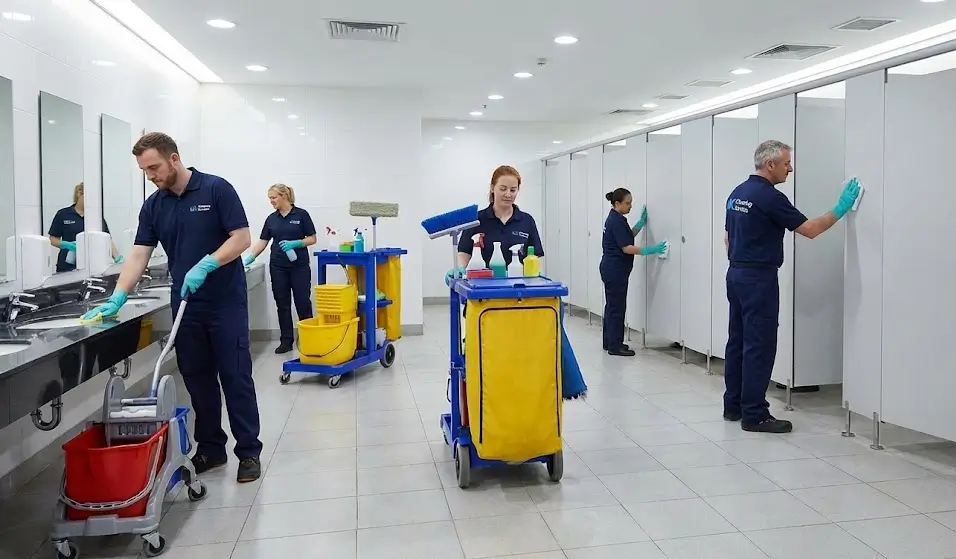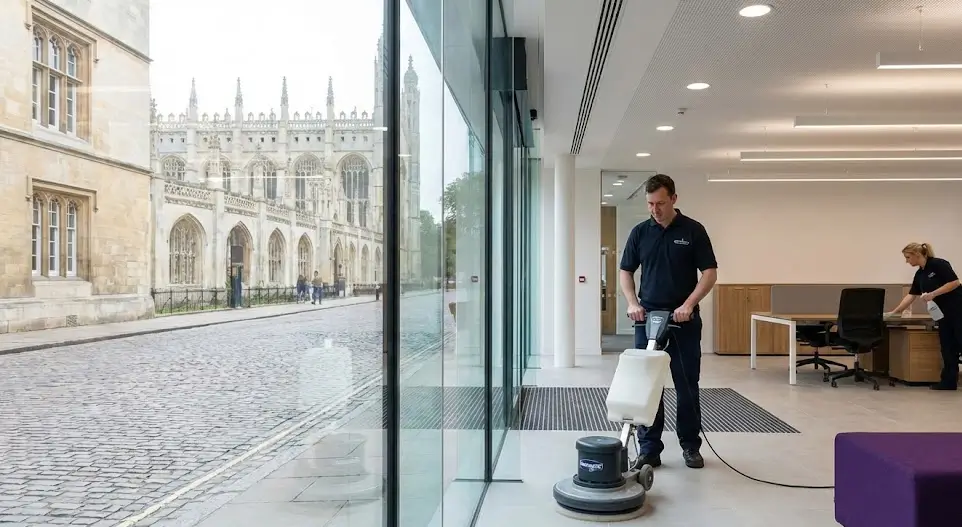
TL;DR: In healthcare, proper infection control means using trained staff, the right tools, and strict protocols. With public expectations and regulations higher than ever, cutting corners on cleaning puts both safety and reputation at risk.
Key Takeaways:
Hospital surfaces might appear clean at a glance, but that doesn’t always mean they’re free from harmful germs.
Healthcare-associated infections (HAIs) still affect thousands of patients every year, and many of these cases could be avoided.
Even with better hygiene protocols in place, many facilities still overlook how essential professional cleaning is when it comes to proper infection control.
In the sections ahead, we’ll take a closer look at what effective healthcare cleaning really involves and the potential risks when it’s not done right.
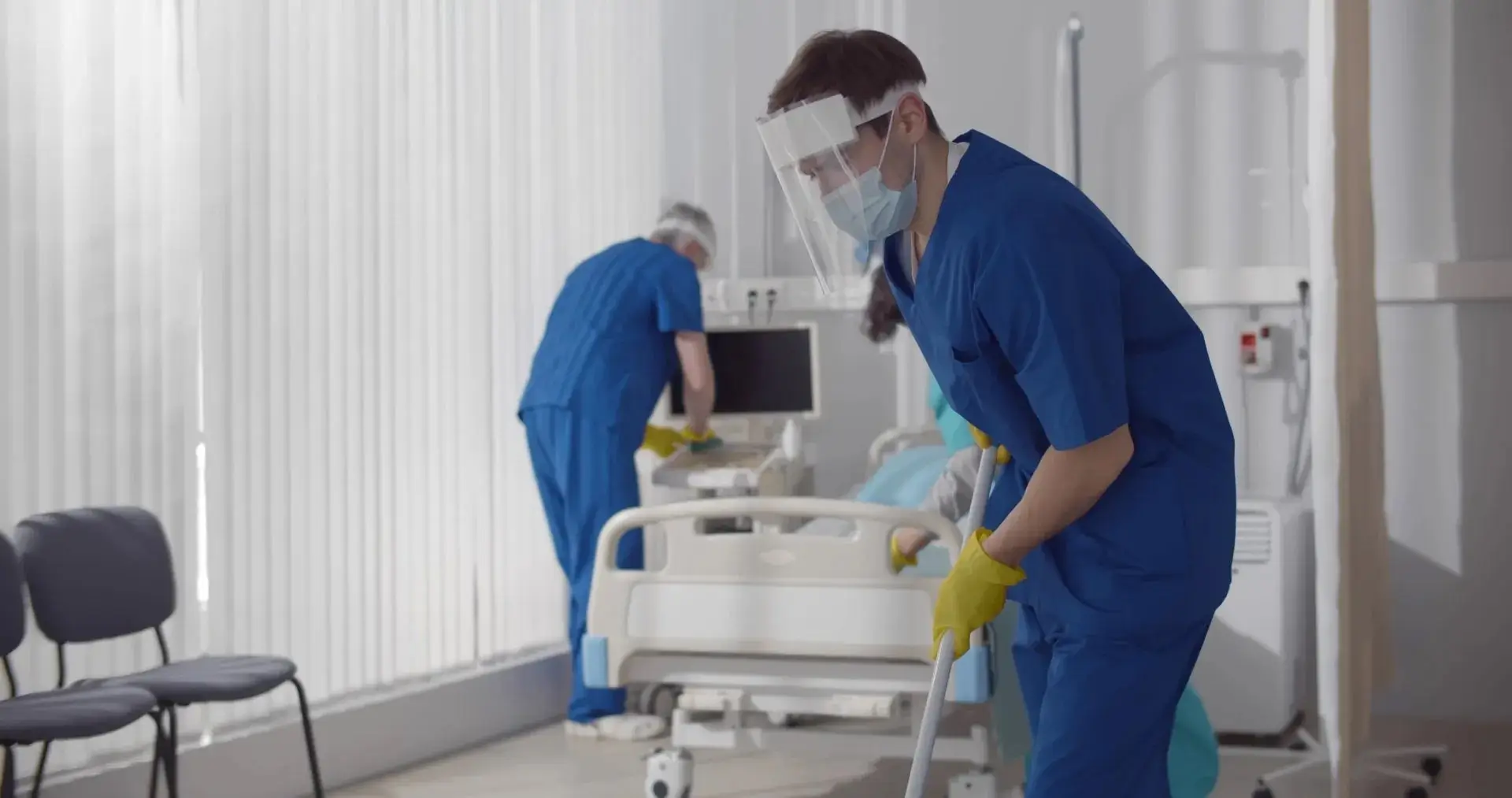
While wiping down surfaces is a good start, it’s not nearly enough. Harmful germs can hide in places we don’t always think about, and some of the most commonly missed spots include:
These areas often go unnoticed or are cleaned less frequently. Without consistent and thorough cleaning by trained professionals increases the risk of infections spreading to patients and staff.
Even when healthcare staff follow strict hygiene rules, germs can still spread. People move between rooms, touch shared surfaces, and interact with patients.
If cleaning routines aren’t consistent or deep enough, bacteria can easily collect and spread without anyone noticing.
Cleaning in healthcare settings needs to be planned and consistent. It shouldn’t be left to chance or done only when something appears dirty.
Each area should be cleaned based on how often it’s used, how many people pass through, and how likely it is to carry harmful germs.
Preventing the spread of germs between areas is essential, especially in healthcare settings where people are more vulnerable. A few key practices can make a big difference:
These simple steps help reduce the chances of bacteria travelling from one space to another, keeping both patients and staff safer every day.
The cleaning products used in hospitals and clinics need to meet strict requirements. Everyday sprays and wipes won’t do.
Professional teams use hospital-grade disinfectants that are proven to kill common pathogens like MRSA and norovirus.
Healthcare cleaning isn’t like cleaning a regular office. Staff need proper training to understand how infections spread, which surfaces are high-risk, and how to safely handle and dispose of contaminated materials.
Before we get into compliance and cleaning standards, you might want to explore this related article: Healthcare Facility Cleaning Services: 7 Reasons Why It’s Vital for Patient Safety.
Healthcare environments in the UK are expected to meet specific standards set by the NHS and the Care Quality Commission (CQC).
This means having clear and consistent cleaning schedules, keeping accurate records of cleaning activities, and following structured infection control procedures.
Falling short of these expectations can lead to serious consequences. A failed inspection can damage the trust people place in your facility.
In more severe cases, hygiene lapses that result in harm to patients can even lead to legal claims.
Healthcare environments need more than a generalised approach. Some cleaning companies use the same tools, products, and staff across multiple types of sites, treating hospitals like office buildings.
This approach doesn’t take into account the unique challenges that come with managing infection risks in healthcare, and it can lead to serious gaps in hygiene.
Reliable healthcare cleaning should include proper audits and documentation. Providers should be able to present logs, cleaning schedules, and risk assessments that show exactly how they manage infection control.
These records help demonstrate that steps are being taken to prevent the spread of harmful bacteria and viruses, which can lead to:
When cleaning teams change too often, valuable knowledge about your site’s specific needs can be lost.
Infection control isn’t just about following a checklist; it’s about understanding routines and recognising potential trouble spots. That consistency is hard to maintain when new faces are always coming in.
For a more detailed guide on how to choose the right commercial cleaning provider, check out our article: Clean, Safe, Compliant: Your UK Guide to Hiring Cleaners.
The pandemic brought infection control to the forefront of everyone’s mind. Since then, the public has become much more aware of cleanliness standards, especially in places like hospitals and clinics. People now expect visible, well-documented hygiene practices. Facilities that can show they’re going the extra mile to keep patients and staff safe are more likely to earn trust and reassurance from their communities.
Today, many professional cleaning providers use eco-friendly, hospital-grade products that are tough on germs but gentler on the planet.
Choosing a cleaning partner who understands how to balance safety with sustainability can support your infection control efforts without compromising your green goals.
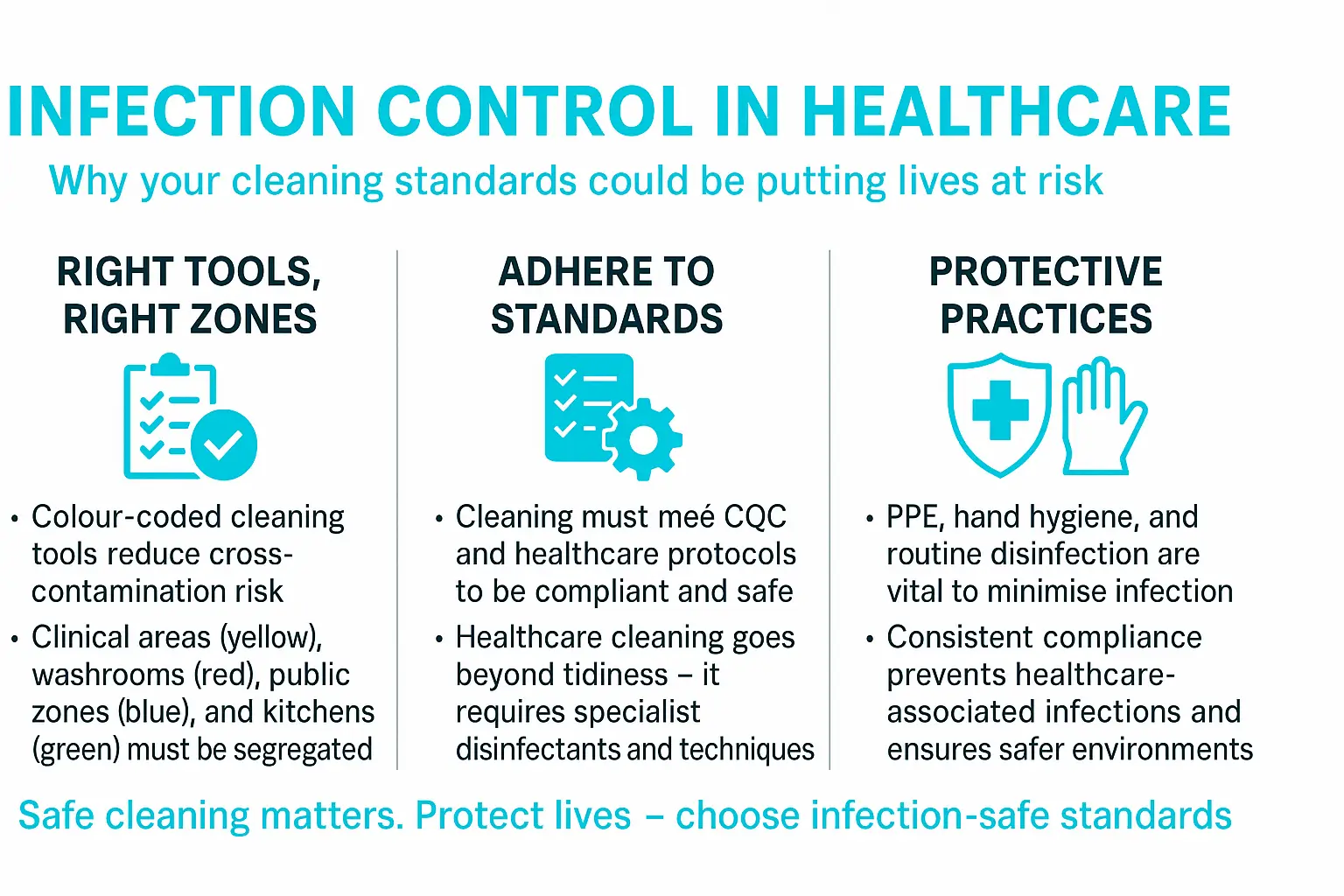
At LZH Cleaning Group, we understand what’s at stake in healthcare settings. Our team is fully trained in healthcare cleaning standards, infection control, and risk-based cleaning schedules.
We work with hospitals, clinics, and care homes across the UK to ensure their environments are not just spotless but safe.
We follow NHS-compliant protocols, offer traceable audit trails, and assign consistent staff who know your site’s specific needs.
To learn more about our healthcare-specific services, visit our dedicated page: Healthcare Cleaning Services.
Let’s talk. Whether you’re looking to replace a current provider or want a one-off deep clean, we’re here to help.
Contact us today to book a free healthcare cleaning audit and see what expert infection control looks like.

